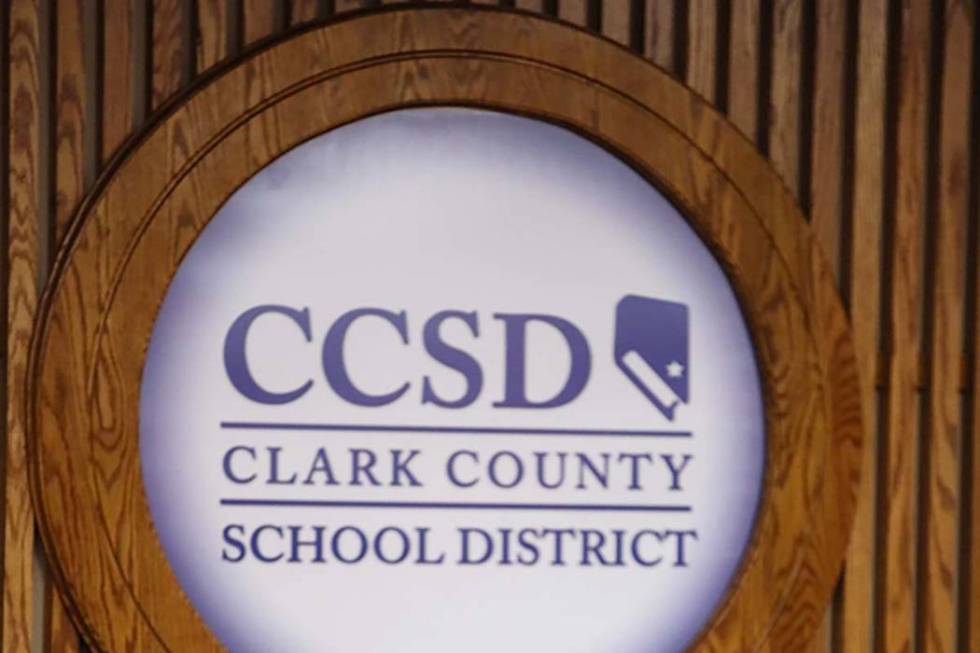EDITORIAL: Abiding by Open Meeting Law would have prevented CCSD dispute

One of the reasons for Nevada’s open meeting law is to prevent the “he said/she said” dispute now playing out in the Clark County School District.
Last month, Superintendent Jesus Jara announced that he was eliminating 170 dean positions. The decision lit off a firestorm of protests from school officials and parents, who argue the deans are vital to maintaining discipline in the schools. But Mr. Jara said the move was necessary to pay for the raises promised by Gov. Steve Sisolak to teachers and other education employees.
The decision seemed to come without debate or warning. But that wasn’t the case, according to one union, the Clark County Association of School Administrators and Professional-Technical Employees.
The administrators union claimed Mr. Jara had taken his plan before the Board of Trustees in a closed meeting. The board, the union claimed, voted 5-2 in favor of cutting the deans before he made the announcement.
If that happened, it would be a clear violation of the open meeting law, which requires government bodies to deliberate in public. The purpose, of course, is to promote accountability and vigorous, open debate on important issues while ensuring the people’s business is conducted transparently. Allowing government boards to operate absent the scrutiny of those they represent is a recipe for corruption and anathema to the principles of a healthy democracy.
There are some rare exceptions that allow closed door meetings. But debating and voting on Mr. Jara’s plan to nix the deans wouldn’t fall under any of them.
So the administration’s union — trying to protect its members and upset with Mr. Jara’s proposal — sued. Last week, District Court Judge Nancy Allf granted a restraining order, which prevented the district from eliminating the positions until the matter could be further litigated.
David Wilson, the union president and principal of Eldorado High School, said he spoke with trustees Chris Garvey, Linda Young and Linda Cavazos after Mr. Jara eliminated the dean positions. He said their conversations “all pertained to a vote that was held within a closed session prior” to the public announcement eliminating the jobs.
“Based on my conversation with the trustees, I understand that the vote was five trustees in favor of removal of the dean of students position and two opposing,” Mr. Wilson declared under penalty of perjury.
Mr. Jara and School Board President Lola Brooks have each submitted sworn statements claiming Mr. Jara didn’t “ask for permission, supervision or oversight” of his decision.
If only Nevada law required Mr. Jara and the trustees to hold these discussions in a public forum, which would have avoided this back-and-forth and the union’s legal action. Oh, wait. That’s exactly what the open meeting law mandates — and for good reason. The public can’t judge the performance or competence of its elected representatives if they take votes behind closed doors.
It was revealed in court that the school district has a tape recording of the secret meeting. If it didn’t have anything to hide, district lawyers might have played the tape or at least allowed the judge to listen to it. Instead, the administrator’s union wrote in a court filing on Monday that the district has “refused to produce a copy of this audio tape.”
That could be because Mr. Wilson asserts Ms. Garvey told him that Mr. Jara’s goal in firing the deans was to create a public outcry that would result in more state funding. That’s yet another topic that shouldn’t be discussed behind closed doors.
On Thursday, the school board belatedly held a public meeting on firing the deans. Mr. Jara said he sought the discussion “out of an abundance of caution.” He and the board should have had that same sense of caution before their closed door session last month. During the meeting, Mr. Jara said he would consider other options to save money. Fine. He must ensure, however, that any discussions with the school board take place in a public setting.